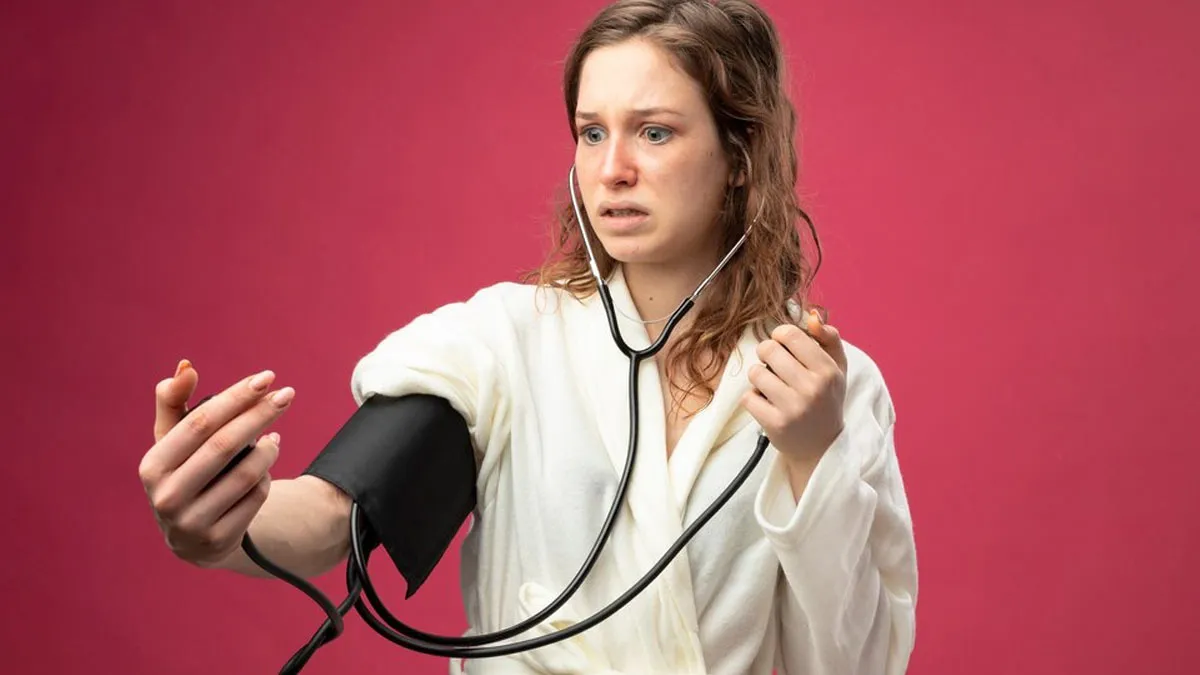
Have you ever felt your heart racing after a stressful day or completely exhausted after a weekend of junk food and no exercise? These small habits might seem harmless, but they can take a toll on your health. If you've considered hypertension to be a problem for older adults, it's time to change that notion. For many in their 30s, juggling work, relationships, and personal goals often leads to unhealthy lifestyle choices that contribute to high blood pressure. We spoke to Dr DK Jhamb, Director and Head of Department, Department of Interventional Cardiology, SHALBY Sanar International Hospitals, Gurugram, who explained how these habits affect your blood pressure and tips to manage it.
Table of Content:-
According to the International Journal of Hypertension, hypertension is when your blood pressure is 140/90 mmHg or higher, or if you are taking medication to manage high blood pressure.
How Lifestyle Habits Raise Blood Pressure Levels At The Age Of 30
At 30, lifestyle habits can significantly impact blood pressure levels. Here are some common lifestyle habits that can raise blood pressure levels:
Physical Inactivity and Obesity

“Spending too much time sitting or engaging in low-physical-activity jobs can increase blood pressure. Not engaging in regular physical activity, such as cardio, strength training or High-Intensity Interval Training (HIIT) can contribute to high blood pressure,” said Dr Jhamb. According to the American Heart Association Journals (AHA) Journal, for every extra hour spent sitting, there was a small increase in blood pressure: 0.06 mmHg in the upper number (systolic) and 0.20 mmHg in the lower number (diastolic).
Unhealthy Diet
Consuming processed and packaged foods can increase blood pressure. Not consuming enough potassium-rich foods, such as fruits, vegetables and whole grains can contribute to high blood pressure. “Eating high amounts of sugar, particularly added sugars can increase blood pressure and consumption of foods high in saturated and trans fats, such as red meat, full-fat dairy products and processed snacks can raise blood pressure,” added Dr Jhamb.
Also Read: Can Weight Loss Affect Your Blood Pressure Levels? Here's What It Could Mean
Stress and Sleep

Chronic and ongoing stress, whether it is from work, relationships or caused by other factors can lead to an increase in blood pressure. Poor sleep quality or experiencing sleep disorders can contribute to high blood pressure. According to the AHA journal, people engaged in rotating and night shift work may experience hypertension risk as shift work can amplify the negative effects of short sleep on blood pressure.
Smoking and Excessive Alcohol Consumption
Other significant contributors to hypertension include smoking and alcohol consumption. Smoking introduces harmful chemicals into the bloodstream, which can damage the walls of blood vessels, narrowing them and making it harder for blood to flow. This directly increases blood pressure.
Similarly, drinking excessive amounts of alcohol can lead to weight gain, disrupt sleep patterns, and raise blood pressure levels. A 2019 study in the Journal of the American College of Cardiology (JACC)found that among 17,059 people, both moderate and heavy drinkers had a much higher risk of high blood pressure than non-drinkers.
Social Isolation
Feeling lonely or not having social connections might not seem like a big deal at first, but it can affect your mental health and stress levels, which can raise your blood pressure. Spending time with others and having a support system is important for your emotional health and can help improve your overall physical well-being.
Also Read: Do All Hypertensive Disorders Raise Diabetes Risk? Expert Answers
How to Manage Blood Pressure at 30
Making mindful lifestyle changes can help in preventing and managing hypertension. Here are some effective strategies suggested by Dr Jhamb:

Getting regular check-ups: Monitor your blood pressure regularly with your healthcare provider
Exercising regularly: Aim for moderate-intensity aerobic exercise or vigorous-intensity aerobic exercise per week
Eating a balanced diet: Focus on whole, unprocessed foods and limit your intake of sodium, sugar and unhealthy fats
Managing stress: Practice stress-relieving activities like meditation, yoga, or deep breathing
Getting enough sleep: An ideal amount of sleep is between 7-8 hours per night.
Quitting smoking: If you smoke, make quitting a priority. Smoking cessation programs, support groups, and counselling can make the process easier and significantly improve overall health.
Limiting your alcohol consumption: If you choose to drink, do so in moderation.For most adults, this equates to a maximum of one drink per day for women and two drinks per day for men.
[Disclaimer: This article contains information provided by an expert and is for informational purposes only. Hence, we advise you to consult your professional if you are dealing with any health issues to avoid complications.]
Also watch this video
How we keep this article up to date:
We work with experts and keep a close eye on the latest in health and wellness. Whenever there is a new research or helpful information, we update our articles with accurate and useful advice.
Current Version
